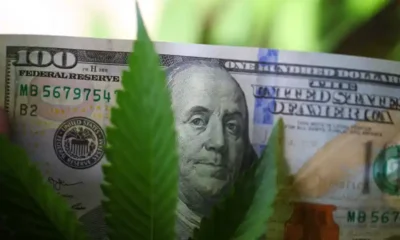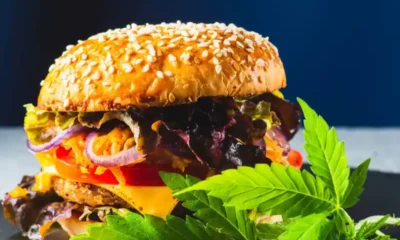Connect with us
Published
2 years agoon

The online retail giant Amazon spent most of the last year enjoying headlines, touting the company as the new big name in cannabis support. Last September, the company’s Senior Vice President of Human Resources Beth Galetti wrote about Amazon’s plan to support ongoing cannabis legalization, including that it would no longer drug test employees for cannabis and would even reinstate former employees who were previously terminated or deferred because of random or pre-employment cannabis screenings.
However, things are rarely that cut and dry. A Seattle Times report revealed the experience of Arnold Marcus, and his company Golden Gate Grinders. Marcus made a living for nine years selling spice grinders on Amazon. Things quickly changed last year when Amazon removed his listing and flagged his products for violating a company policy that prohibits the sale of drugs and drug paraphernalia.
For an item like a grinder, which could also be used for spices, Amazon says that grinders equipped with features specifically made for cannabis use are not allowed on the platform.
“Third-party sellers are independent businesses and are required to follow all applicable laws, regulations and Amazon policies when listing items for sale in our store,” an Amazon spokesperson told the Times. “We have proactive measures in place to prevent prohibited products from being listed, including drug paraphernalia, and we continuously monitor our store, remove any such products and take corrective actions when we find them.”
The problem for many sellers is that, while the language in the policy is clear, its enforcement is uneven.
Marcus said he had no indication from Amazon over the near-decade that he was selling a prohibited product. “One day, they were supporting me and then one day it ended,” he said.
Marcus’s experience isn’t necessarily unique, though, as many products that have been sold on the platform for years are sometimes flagged without warning, including spice grinders like the ones Marcus sells. The inconsistency comes when consumers can witness those products that are allowed to stay online, like one grinder that explicitly notes users can “keep your weed in it until you need it” in the description, according to the Times.
Lesley Hensell is the co-founder of Riverbend Consulting, which helps third-party sellers on Amazon.
“They’ve always said there’s no drug paraphernalia but there were lots of products that were ambiguous products that were able to sell on the platform for years and years,” Hensell said, adding that there was a period of very little enforcement, followed by a period of very strict enforcement for sellers. This ultimately left sellers with questions about what is allowed and how to proceed with business in the future, now with a prohibited product.
Riverbend started hearing more cases around grinder listings last year, according to Hensell, as Amazon began using artificial intelligence to search for illegal items on the site, ultimately flagging products easily that might have slipped through the cracks before.
Progress in the digital realm is admittedly a bit sluggish, if not somewhat nonlinear and uneven. Last year Apple decided to no longer prohibit cannabis-related apps in its App Store, while the Google equivalent for Android OS smartphones banned apps facilitating cannabis sales in 2019 and the rule remains in place.
Earlier this year, New York officials looking to share PSA-style ads digitally about cannabis safety also ran into barriers, specifically with TikTok. As a social platform with mostly young people (75% of users are between the ages of 18 and 34), it was a prime demographic to target with informational ads. TikTok refused to host the PSAs based on its blanket ban on drug advertising.
This is on top of cannabis businesses being unexpectedly shut down, or “shadow-banned” (meaning their accounts don’t show up in standard searches), on Facebook and Instagram, while other cannabis businesses remain untouched, again nodding to questions around inconsistent policy enforcement.
Marcus had been a vocal supporter of Amazon prior to this shift, but he’s now considering filing for bankruptcy. With almost a year off the platform, he said he no longer feels confident in his ability to build up the business again.
“Even if somebody woke up one morning and said ‘Let’s let him back on,’ that would be very challenging,” Marcus said. “I have to start from the beginning. They seriously damaged and hurt my company.”
Hensell said that she has started to tell third-party sellers in the spice grinder business to look to other outlets, adding that what Amazon has done “is working as intended.”


You Don’t Understand the Difference Between Decriminalizing and Legalizing, Do You?


North Dakota Committee Files Ballot Measure To Legalize Adult-Use Cannabis


California County Mulls Reduction To Cannabis Cultivation Tax


Cheech and Chong Become Newest Operators in Call of Duty


Manage Your Munchies: This Year’s Top 420 Meal Deals


New York Cannabis Control Board Approves 101 New Adult-Use Licenses
